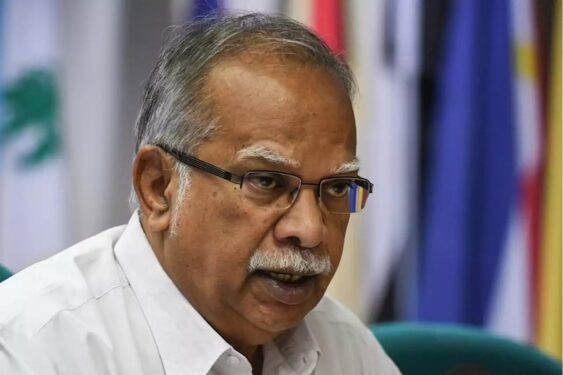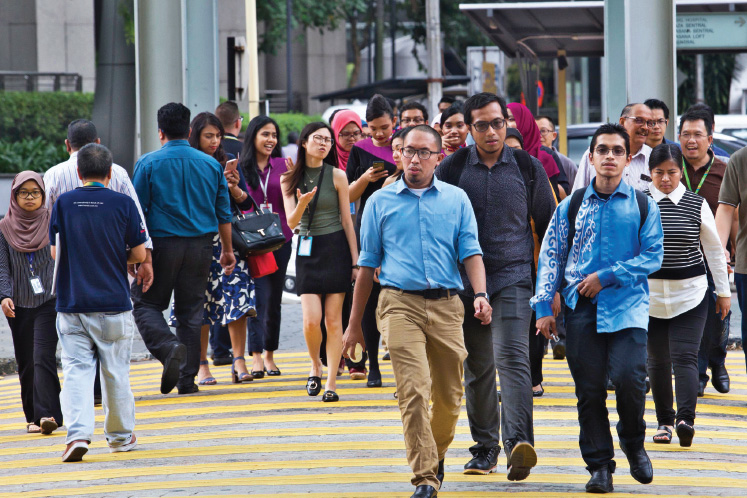IT is believed that there is a general shortage of workers in the country – both foreign and talented. It is expected that more foreign workers would come into the country shortly based on the announcement of the Human Resource Ministry.
While the shortage of unskilled workers can be addressed to some extent by turning to foreign labour, the real problem is the acute shortage of talented workers who are mostly the locals.
Even some labour economists are saying that the shortage of both unskilled and skilled workers is quite artificial.
It is not that there are no local workers but the problem of lack of optimal use of labour force. While employers might raise hue and cry about labour shortage, there is little or no effort on their part to improve labour conditions at work places.
Improvement of wages, better working conditions and the freedom of association would go a long way in assisting employers in obtaining the services of local workers.
It is not rocket science to say that – generally – working conditions in industries and manufacturing establishments leave much to be desired for. The labour laws in the country are not effective in enforcing better working conditions among the workforce.
Pro-employer stance
Rather than looking at the structural problems standing in the way of the utilisation of local labour, the Government is more accepting of the reasons advanced by employers about labour shortage.
In the last decade or so, given the acute labour shortage, some companies have made genuine attempts to improve labour conditions to recruit and sustain the use of local labour.

However, this is not the case with employers especially in the industrial, manufacturing and agricultural sectors who tend to utilise cheap and unskilled labour. It is these sectors that constantly require cheap and malleable labour force.
Since those employers pay little attention to the value of labour, there is hardly an initiative to pay better wages and benefits to labourers.
In the export of products, those establishments which rely on cheap labour are very often confronted with the accusations of forced labour.
I really wonder how the increased employment of foreign labour will allow the country to escape the entrapment of forced labour.
Unfortunately, the Government or more specifically, the Human Resource Ministry, is clueless in terms of planning and organising the labour force in the country in terms of its optimal utilisation.
Amendments to labour laws are piecemeal at best as they don’t address the optimal use of local labour.
Clueless Government
It is not that local workers are lazy or show no interest in working in the industrial, manufacturing and agricultural establishments.
It is just that the labour conditions are insufficient to address the material and social conditions that are expected by local workers who are citizens of this country.
While foreign labour can be repressed to some extent, this is not possible with local labour. The labour legislations are becoming incongruent with social and material advantages of local workers.
Sure there is lack of talented workers. Malaysians do not possess the necessary skills and talents to take up positions in the high-end industries.
Our local universities might be churning out thousands of graduates but there is misfit with the demands of the industry.
While we have hundreds of colleges and training centres that are engaged in the production of talents, what is produced is not sufficient to address the growing demands of the industries.
One of the biggest stumbling blocks in the production of talented workers is the over-emphasis on the need to protect the low-skilled sectors.
The current debate about whether we have enough workers and why the delay in recruiting foreign workers is all about addressing the needs of employers in the low-skilled establishments within the manufacturing and plantation industries.
Unfortunately, the Government has no clue to go about addressing the future labour needs of the country particularly to create a sustainable talented workforce.
This is not about increasing or decreasing the intake of foreign labour. The more foreign labour is brought into the country, the more difficult it will be to liberate the low valued unskilled labour sector into a more dynamic one.
The crucial problem in this country is very basic: there is no respect for the labour of the workers. While they need labour, employers are not prepared to recognise the value of labour.
How to improve talents and skills among workers if their labour value is not appreciated or advanced? Of course, the Government of the day is clueless.
This is manifested in how workers are being treated and remunerated in their workplaces. At the end of the day, Malaysians must face up to the truth that the Government is all for the employers.
The well-being of workers only matter if they affect the production process. – Oct 5, 2022
Prof Ramasamy Palanisamy is the state assemblyperson for Perai. He is also deputy chief minister II of Penang.
The views expressed are solely of the author and do not necessarily reflect those of Focus Malaysia.
Main photo credit: The Edge Markets









